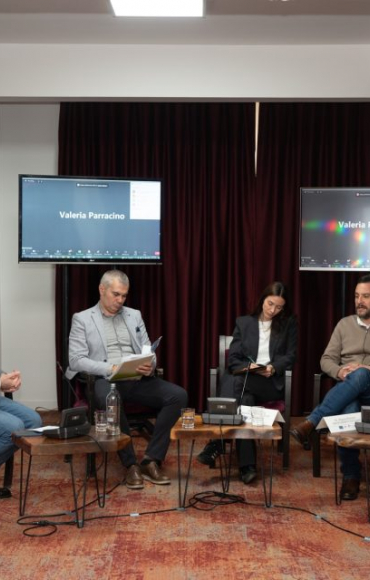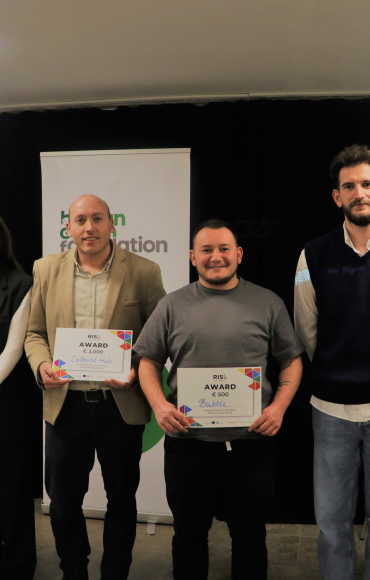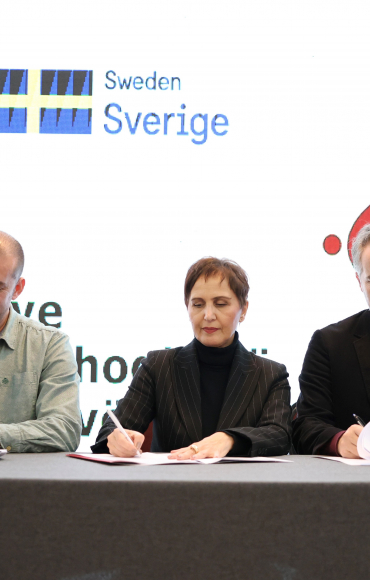18 December 2020
Balkan Green Foundation’s Programmes and Operations Manager, Rinora Gojani, represented the Western Balkans region at the roundtable on “Environmental Rights Activism and Advocacy in Europe: Issues, Threats, Opportunities” organized by the Commissioner for Human Rights of the Council of Europe.
The roundtable was held at a European level, with environmental activists of countries from all over Europe coming together to unfold barriers faced by environmental human rights defenders and activists working on issues related to the environment, as well as present possible solutions to these problems, providing a platform for participants to exchange and learn from one another, and helping to identify and select areas where the Commissioner could bring most added value in the future.
The discussion commenced with opening remarks from Dunja Mijatović, Commissioner for Human Rights, where she underlined her support for the work of environmental human rights defenders and environmental activists, their protection, and the need to strengthen the foundations that advance actions towards environmental human rights protection. The Commissioner added that she believes that these parties should be able to pursue their activities in safety and in enabling conditions, free from stigmatization, harassment or persecution and that she strives to use her mandate and voice to further their work towards environmental preservation.
Participants emphasized a series of issues faced in the pursuit of environmental human rights protection. They underlined litigation as a mechanism in advancing their pursuits, but stress the shortcomings of these schemes, labeling the process as a nuanced, lengthy, and cumbersome procedure with high cost-implications. They also highlighted issues of transparency, corruption, the role of businesses, and criminalization as key problems, while also stressing issues including oppression and retaliation, prosecutions of the activists, and subjection of these activists to physical attacks.
During her speech, Rinora Gojani highlighted the issues faced within the Western Balkans, underlining air pollution interlinkage with the region’s energy system's large reliance on fossil fuels. In this regard, she underlines a weak allocation of investments in the environmental domain that bear adverse economic, environmental, and social implications. She refers to investments in hydropower plants as an example, which even though contribute to reaching renewable energy targets, these investments in fact are doing more harm than good.
Gojani attributes these happenings as a resultant of the poor economic state of the countries in the Western Balkan region and eagerness to absorb investments, corruption, lack of transparency, and weak rule of law implementation. The amalgamation of these issues bears adversarial effects long-term that will be very difficult to reverse.
However, she marks that when environmental movements are complemented by the engagement of citizens, this largely and positively affects the outcome and success of environmental actions by amplifying the voice of the organizations, which is why it is important to engage in advocacy and awareness-raising actions to bring the role of citizens in driving change for the better and engaging the media as indispensable tools in the fight towards protecting environmental human rights.
Participants uniformly conceded on the importance of concerted actions that further strengthen the foundation of the operations of environmental movements, all the while stressing the importance and interlinkage of human rights and environmental protection. It is important to ensure that individuals confronted with environmental degradation have access to appropriate procedures, including the right to receive information, to participate in decision-making, and to have access to effective redress and legal systems. State - and international - level action are only two aspects of a broader patchwork of solutions. In this session, participants also encouraged any local, grassroots, or organizational good practices to address today’s environmental human rights challenges and stressed the importance of engaging citizens more proactively and simultaneously in the actions that will further a vision for a just and cleaner environment for all.


